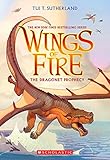I recently got a post from a blogger I follow (The Reading Sage) with a link to vocabulary lists. One of the lists he shares in from Marzano’s Research on Academic Vocabulary (Vocabulary for the Common Core © 2013 Marzano Research Laboratory • All rights reserved). Marzano says:
“For Tier 2 words, we included all cognitive verbs from the CCSS and all cognitive verbs listed in Designing and Teaching Learning Goals and Objectives…. “This includes words like accomplish, analyze, comprehend, determine, distinguish…. [Bolding mine].
http://reading-sage.blogspot.com/2017/01/grade-3-tier-2-vocabulary-word-list.html?utm_source=feedburner&utm_medium=email&utm_campaign=Feed%3A+ReadingSageReviews+%28Reading+Sage+Reviews%29
It reminded me of a similar vocabulary list I constructed for a wiki on Reading Comprehension. The page was titled the Thinking Cognitive Operations Glossary; it was posted September, 2010.
http://explorience1.pbworks.com/w/page/48819344/Thinking%20Operations
This list was constructed from what was then the Vermont version of “CCSS” It was described as VT. GLEs for History/Social Studies. Definitions were adapted or adopted from Collins CoBuild Dictionary Some of the words were:
Abstract (abstractly, abstraction) Talk and think in a general way, rather than about a specific for particular thing or event.
Allege: If you allege that something bad is true, you say it but do not prove it.
ANALYZE: IF YOU ANALYZE SOMETHING, YOU CONSIDER IT CAREFULLY. YOU MAY USE SCIENTIFIC METHODS IN ORDER TO FIND OUT WHAT IT CONSISTS OF.
ARGUE If you argue that something is true, you state it and give the reasons why you think it is true. His lawyers are arguing that he is unfit to stand trial…
Assess: When you assess a person, thing, or situation, you consider them in order to make a judgment about them.
Assert: If someone asserts a fact or belief, they state it firmly.
Assure: If you assure someone that something is true or will happen, you tell them that it is definitely true or will definitely happen, often to make them less worried (or more confident about what you say).
And this brings me back to the current blog sequence. I believe that a good place to start understanding the development of Metacognition/Executive Function is by paying attention to the vocabulary that children use. I remember that my grandson used words like remember, think, “teached,” and learned as a preschooler. A little later, though still in preschool, he used words like actually and mistake. His most recent word of interest, as a 6 year old, is the word “literally.” He wasn’t able to give the meaning of this word, but he used it correctly any number of times and in different contexts. In my experience in preschool and kindergarten, it is not uncommon to hear preschool and kindergartners use words like forgot, remember, think, know, don’t know.
Using these “mind” words is not uncommon in educational contexts and there is an expectation that children will learn and need to learn these kinds of “thinking” words. For example, in a 2013 text by Neuman and Wright titled All About Word: Increasing Vocabulary in the Common Core Classroom, PreK-2, they refer to words they describe as “supportive role” words, words that facilitate the understanding of content words. So, for example, for the content words about the human body (brain, blood, chest, chin), there are related supportive words (observe, predict, discover, examine, notice, recognize).
A related starting place for the development of Metacognition/Executive Function is the adult’s directive to children to “use your words.”








